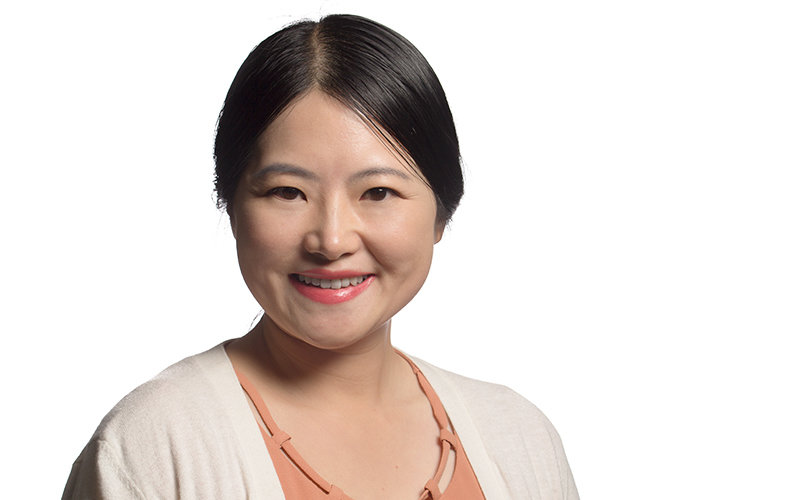
Wenlin Han has joined Cal State Fullerton’s Department of Computer Science to help future security experts solve the complexities, threats and challenges of the “internet of things,” the giant network of connecting devices to the internet — from cellphones, vehicles to jet engines.
Han, assistant professor of computer science, has published more than 20 peer-reviewed papers on security and privacy issues related to the internet of things. She also has served as a reviewer for journal article submissions and fosters women in computing careers.
A native of Wuhan, the capital of central China’s Hubei province, she earned her bachelor’s degree in computer science from Central China Normal University and her doctorate and master’s degree in the discipline from the University of Alabama.
What inspired you to go into this field?
My passion for this field is rooted in creating solid solutions that have both theoretical and practical value to transform research and innovation around the internet of things, the network where various ‘things’ or smart devices, such as smart home appliances, wearable devices, smart meters and smart vehicles, are all connected to each other. Industry has estimated that the internet of things network could create an economic value up to $19 trillion in the next decade.
What are your research interests?
I’m interested in learning more about the internet of things and finding solutions to security and privacy issues. These are big threats since smart devices are interacting with our physical environment and collecting information from us. We need to find ways to make sure information stays secure. Although we already have many sophisticated security solutions, these solutions do not solve all the complex issues of the internet of things. My work also focuses on the security of smart grids, or electrical grids, a crucial part of the internet of things. Electricity theft poses a threat to smart grids, where fraudsters compromise smart meters and send false billing information to the utility to lower electricity bills.
What do you hope students learn from your teaching?
I hope to inspire students to discover their potential. My goals include providing them with learning opportunities that impact their lives, as well as giving them real-world problems to solve, which can motivate learning. As a research mentor, I offer students hands-on experiences that help them develop leadership skills and how to work collaboratively with others.